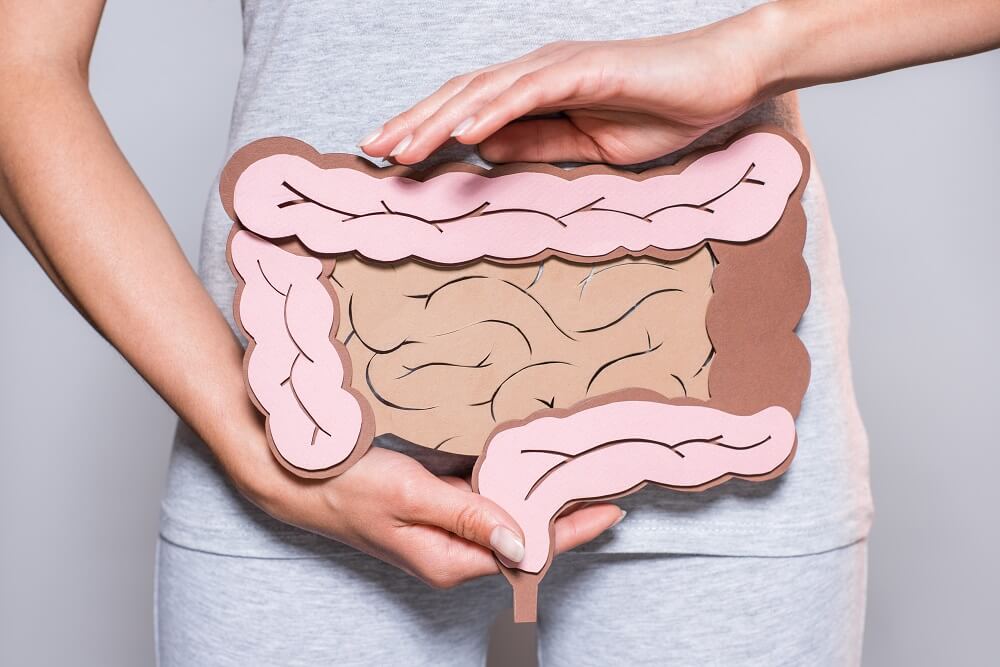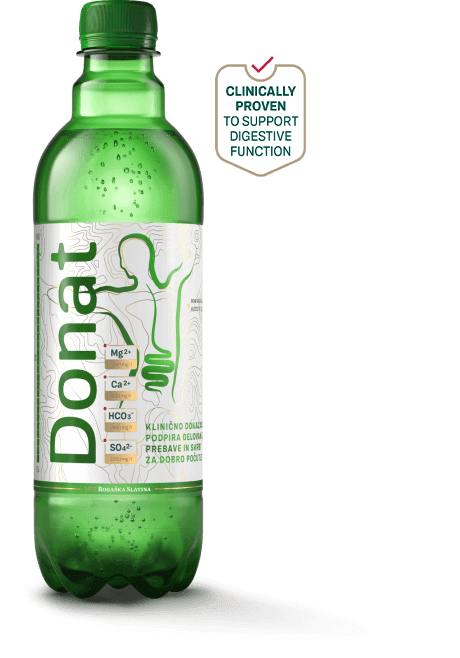It is impossible to imagine the functioning of the immune system without the correct functioning of the digestive organs. The microbiota in the human intestines develop together with the host immune system. The microbial community performs various functions in the human body, while for physiology the connection between the host immune system and the microbiota is of key importance.[1]. “Intestinal immunity” must remain in dynamic balance with the homeostasis of the human body and respond to microbial invasion. The digestive tract is not only “home” to a large number of microbes, it is also the organ that contains the largest number of immune cells, present in lymphoid structures. Macrophages, T cells, secretory immunoglobulin A (IgA) and numerous other antibodies that form in intestinal immune cells contribute to the generation of an immune response to pathogen invasion while keeping the microbial community in check.[2, 3, 4]
The intestinal epithelium is continuously exposed to pathogenic bacteria, fungi, viruses and parasites. Pathogens can affect the integrity and functioning of the intestines[5] and threaten the immune system.[6] The process of the interactions of the intestinal mucosa, microbiota and pathogens has been the subject of active and comprehensive study for a number of years.
We must therefore be extremely attentive to the correct functioning of the intestines. In patients suffering from constipation, a slower passage of digestive tract contents is typical. The accumulation of large quantities of faeces upsets the microbial balance, affects the state of the intestinal mucosa and leads to disruption of a proper immune response.[7]

A study carried out on a group of patients prescribed Donat medicinal mineral water showed that this water, thanks to its unique trace element composition, can influence the metabolism of the useful intestinal microflora. Several authors [8, 9, 10] have shown in their studies that magnesium and calcium can stimulate the growth of bifido- and lactobacteria,[8] boost the synthesis of extracellular proteinases of bifidobacteria[9] and improve the functional features of the extracellular lipase from L. plantarum.[10] A 2016 study by N. V. Khoroshilova, L. V. Pozhalostina and E. I. Likhanskaya included 37 patients with irritable bowel syndrome with constipation (K58.2 under ICD-10) in remission. Donat mineral water was taken by 22 patients aged between 30 and 80, among whom there were an equal number of men and women. The patients took a 100 ml dose twice a day (before meals) for three weeks and tolerated it well. They did not complain, nor were any side effects observed. In all patients the qualitative and quantitative composition of intestinal microflora was tested before and after the study. The study established that in 63.6% of the patients who drank the mineral water a normal level of lactobacteria was re-established and excessive growth of conditionally pathogenic microflora was reduced. A positive dynamic of clinical manifestations (nature and frequency of faecal discharge normalised, stomach pains reduced) was also observed.
The Donat mineral water drinking cure thus has a beneficial effect on the body, eliminates constipation,[11] improves intestinal microflora and consequently contributes to an adequate immune response and maintaining the homeostasis of the body.

References
- Hooper L., Macpherson A. Immune adaptations that maintain homeostasis with the intestinal microbiota. Nat Rev Immunol 10, P. 159–169 (2010). (https://doi.org/10.1038/nri2710)
- Sansonetti P. War and peace at mucosal surfaces. Nat Rev Immunol 4, P. 953–964 (2004). (https://doi.org/10.1038/nri1499)
- Maslowski K., Mackay C. Diet, gut microbiota and immune responses. Nat Immunol 12, P. 5–9 (2011). Quinteiro-Filho et al., 2012. (https://doi.org/10.1038/ni0111-5)
- Quinteiro-Filho W.M., Rodrigues M.V., Ribeiro A., Ferraz-de-Paula V., Pinheiro M.L., Sá L.R.M., Ferreira A.J.P., Palermo-Neto J., Journal of Animal Science, Vol. 90, 2012, I. 6, P. 1986–1994. (https://doi.org/10.2527/jas.2011-3949)
- Droleskey R.E., Oyofo B.A., Hargis B.M., Corrier D.E., DeLoach J.R., Avian Dis, 1994, I. 38,P. 275–281.
- Neish, 2002. (https://doi.org/10.1016/S1286-4579(02)01543-5)
- İliaz R., Akyüz F. Does the number of mucosal immune cells differ in irritable bowel syndrome and its subtypes? Turk J Gastroenterol. 2018, I 7, P. 384 – 391.
- Topouzian N., Joseph B.J., Bezkorovainy A. Effect of various metals and calcium metabolism inhibitors on the growth of Bifidobacterium bifidum var.pensylvanicus.// J Pediatr Gastroenterol Nutr, 1984, I 3(1), P. 137-42
- Новик Г.И, Астапович Г.И., Самарцев А.А. Микроэлементы, полученные во время процесса естественного флинта, воздействуют на физиологию и биохимию бифидобактерий. // Прикладная бихимия и микробиология, 2001, 37(3): С. 317−325
- Lopes M.F., Leitǎo A.L., Regalla M. Et al. Characterization of highly termostable extracellular lipase from Lactibacillus plantarum. // Int Food Microbiol, 2002, I. 76(1-2), P. 107−15.
- Bothe G., Coh A., Auinger A. Efficacy and safety of a natural mineral water rich in magnesium and sulphate for bowel function: a double-blind, randomized, placebocontrolled study. Eur J Nutr 2015. (http://link.springer. com/article/10.1007%2Fs00394-015-1094-8)
Choose chapter:






